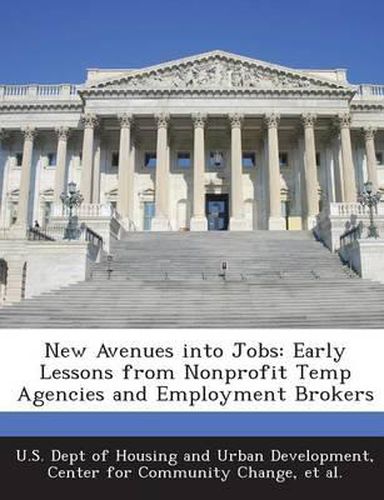Readings Newsletter
Become a Readings Member to make your shopping experience even easier.
Sign in or sign up for free!
You’re not far away from qualifying for FREE standard shipping within Australia
You’ve qualified for FREE standard shipping within Australia
The cart is loading…






Economic success poses its own dilemmas. For example, while the U.S. economy is creat-ing new skilled and semi-skilled jobs at an unprecedented rate, those new jobs are not equally accessible to all Americans, both in terms of where one lives and of the skills and income one needs to claim those jobs. In short, people in rural areas and areas in which manufacturing firms (and jobs) have fled do not have equal access to the new employment; neither do those persons with less skills, less education, lower income. A related dilemma is that, although some comminutes have arrived at remarkably innovative and successful means, frequently with support from the U.S. Department of Housing and Urban Development, to address the first dilemma, those initiatives have not been systematically described and widely disseminated. As the result, even highly successful initiatives have not claimed wide currency. The four studies that comprise this effort go some way to addressing the second dilemma. They explore in detail four strategies that have shown marked success in producing and maintaining economic opportunities and jobs and also in making them available to people with low incomes. The four studies were conducted by the Center for Community Change with support by the Office of Policy Development and Research of the U.S. Department of Housing and Urban Development, the Pew Charitable Trusts and its Fund for Urban Neigh-borhood Development and by the Center for Community Change itself.
$9.00 standard shipping within Australia
FREE standard shipping within Australia for orders over $100.00
Express & International shipping calculated at checkout
Economic success poses its own dilemmas. For example, while the U.S. economy is creat-ing new skilled and semi-skilled jobs at an unprecedented rate, those new jobs are not equally accessible to all Americans, both in terms of where one lives and of the skills and income one needs to claim those jobs. In short, people in rural areas and areas in which manufacturing firms (and jobs) have fled do not have equal access to the new employment; neither do those persons with less skills, less education, lower income. A related dilemma is that, although some comminutes have arrived at remarkably innovative and successful means, frequently with support from the U.S. Department of Housing and Urban Development, to address the first dilemma, those initiatives have not been systematically described and widely disseminated. As the result, even highly successful initiatives have not claimed wide currency. The four studies that comprise this effort go some way to addressing the second dilemma. They explore in detail four strategies that have shown marked success in producing and maintaining economic opportunities and jobs and also in making them available to people with low incomes. The four studies were conducted by the Center for Community Change with support by the Office of Policy Development and Research of the U.S. Department of Housing and Urban Development, the Pew Charitable Trusts and its Fund for Urban Neigh-borhood Development and by the Center for Community Change itself.